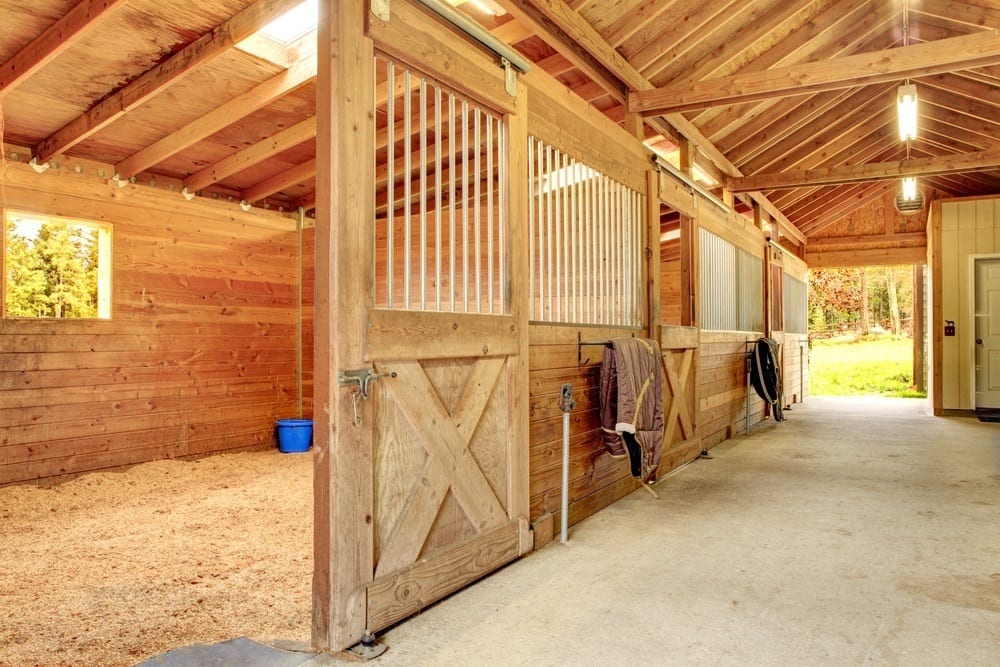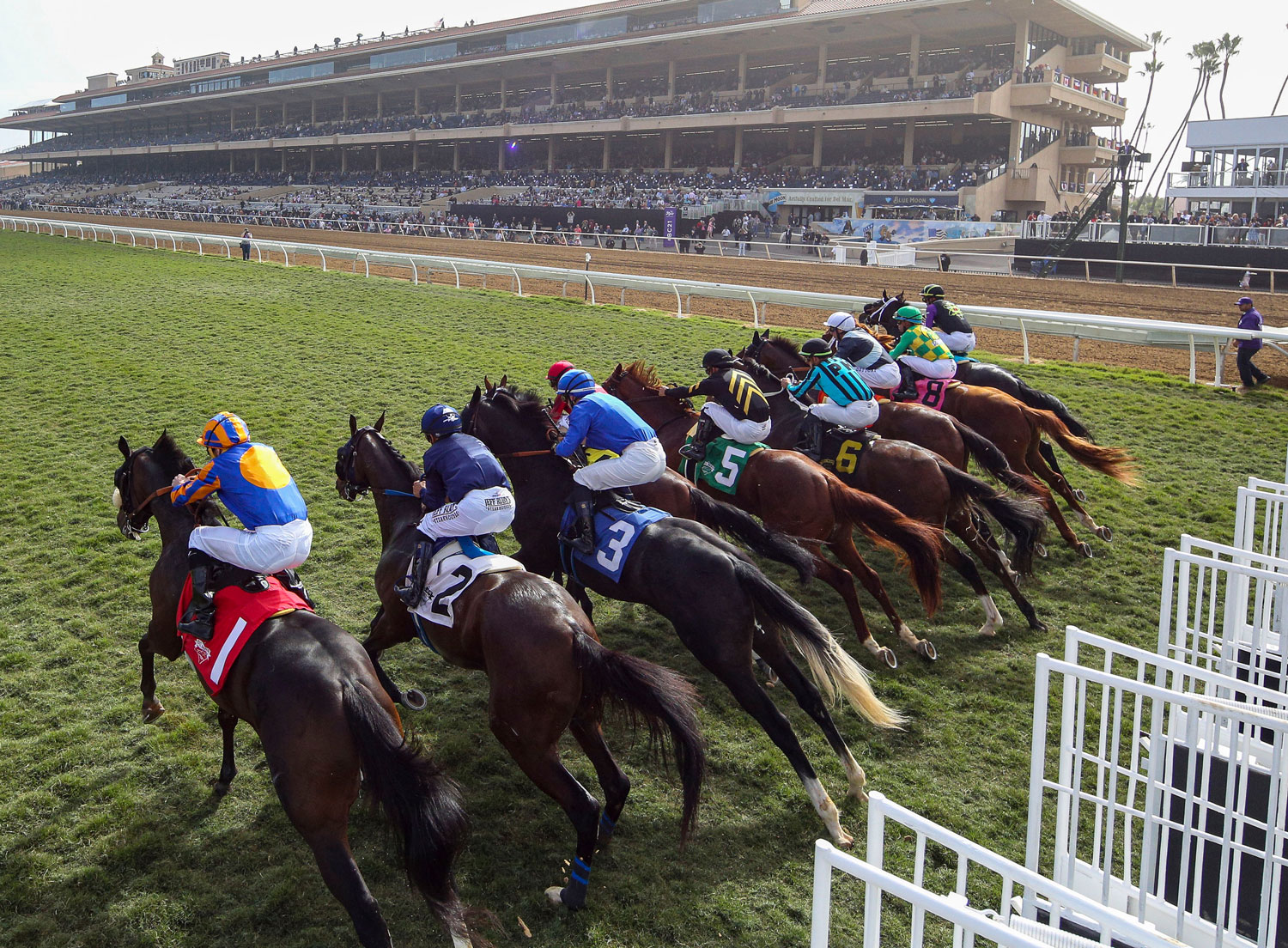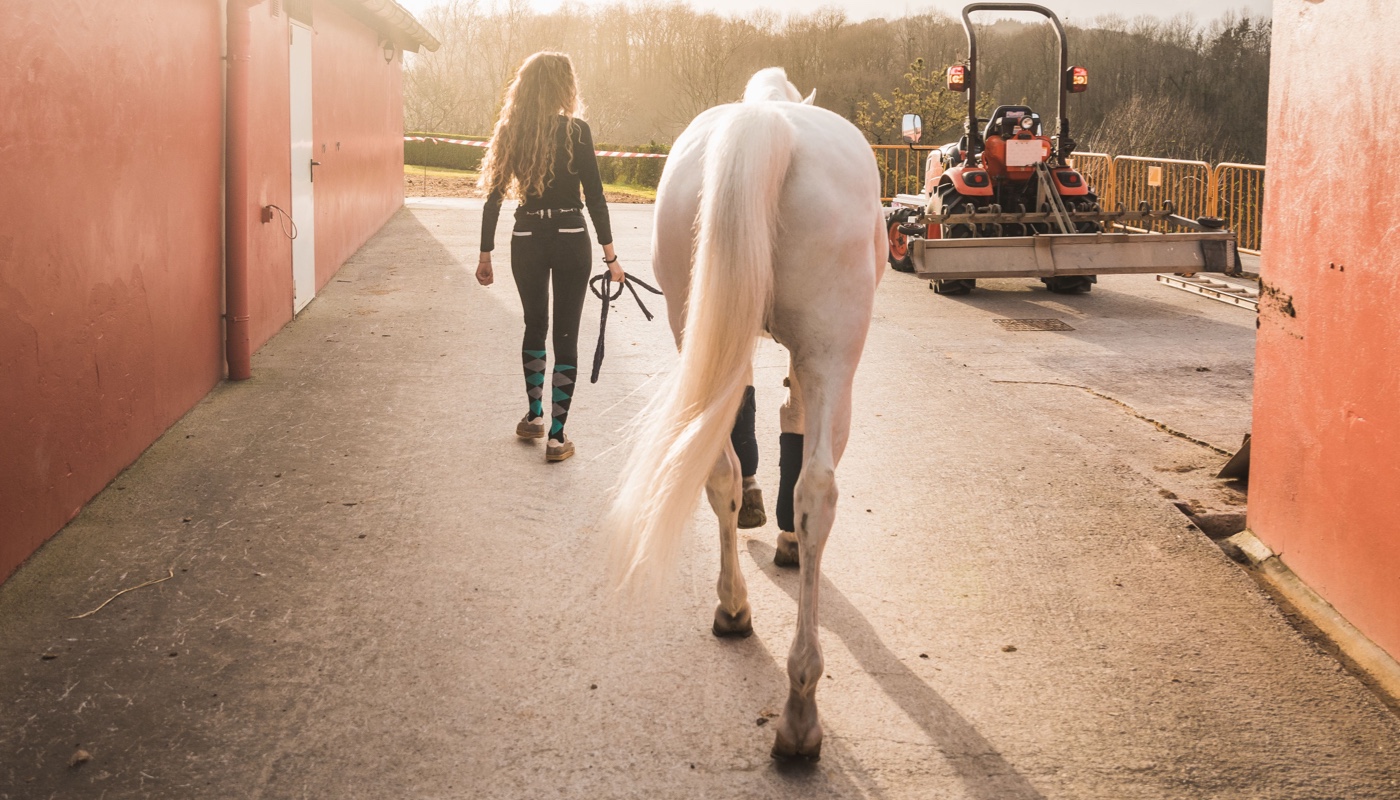Almost every horse movie includes at least one scene where the main character walks into a barn and a row of horses pop their heads up and start to nicker. As a horse person yourself, you’ve probably had this experience in real life — and it’s pretty great to feel instantly appreciated by an animal you (frankly) pour an awful lot of time, energy and money into.
We see the classic “barn scene” over and over again in the movies, in literature and in real life, leading us to believe that horses belong in a barn, and that it’s normal — and natural, even — to keep horses confined. And then of course, it’s much more convenient to keep a horse at your beck and call, where saddling up for a ride is as simple as fetching your mount out of his stall.
With all of the convenience and cultural reinforcement we experience around this theme of confinement, it would be easy to believe that horses belong in a barn, except when being worked. However, thinking that confinement is normal for horses — and maybe even preferred — is a myth. Keeping horses in the barn or in a small pen more often than is truly necessary is not ideal, and may even be causing damage.
Horses Aren’t Used to Confinement
Before continuing, let’s get one thing straight: horses need access to a stall or shelter at all times. If a horse is turned out in a paddock with no access to shelter, it’s the horse owner’s job to be monitoring the weather conditions and to be on hand to bring that horse in as appropriate. And of course there are times when confinement may be medically necessary, such as when a mare is ready to foal, or if you’re monitoring an illness or injury. Turnout is also a rarity on the show circuit, necessitating more stall time. But in general, confinement isn’t ideal for horses. The ancestors of our modern-day horses were free roamers who would often naturally travel many miles in a single day, slowly grazing along the way. This worked well for these horses. We can see this lifestyle in wild horses today. But for the vast majority of modern-day horses, humans have intervened to make horses adapt to our lifestyles — and quite frankly, having a horse safely boxed up is easier for everyone except the horse.A Turned-Out Horse is a Healthier Horse
You don’t have to look any farther than the evidence presented by your horse’s gastrointestinal tract to know that horses were designed to spend all day grazing.- Horses need a little bit of food in the stomach all the time to help buffer the continuously secreted digestive acids that break down food. Slow, continuous grazing provides fiber, bulk and energy.
- The higher-fiber forage available from grass also travels through the small intestine more slowly, allowing your horse to absorb more nutrition than he would from low-fiber foods that pass more quickly through his system.
- The process of moving leisurely around the pasture while grazing helps prompt natural muscle contractions in the gut, helping stimulate gut motility.
A Turned-Out Horse is Happier Horse
If you’ve ever played a frustrating game of “catch me if you can!” with your horse when you go out to the field to bring him in, or watched horses kick up their heels in joy when you slip off their halters, you’ve seen the evidence of a happy horse. Most horses love having the freedom to roam. If your horse doesn’t, take a look at his situation: is there plenty to eat where he’s turned out? Does he have other horses that pick on him, or is he completely isolated and wishing for a buddy? Chances are, if your horse is hanging his head over the gate, he probably a). doesn’t have enough to eat in the pasture, and b). has gotten used to getting all of his feed via grain fed in the barn. And as we’ve often said, relying only on grain can be very detrimental to your horse’s health. Horses are designed to live primarily on small, constant meals that are mostly forage. Giving him two big dumps of highly processed feed twice a day just won’t cut it.What to do When You Can’t Turn Out Your Horse
While it’s a myth that horses should be constantly confined, research suggests that it’s true that horses that are turned out are less likely to suffer from digestive-related issues. That said, sometimes you simply can’t turn out your horse. While you should do whatever possible to ensure that he isn’t kept permanently in a situation that prevents turnout, your travel schedule, his health or the weather may sometimes temporarily prevent it. If that happens, try this:- Mimic turnout by letting your horse out into a ring or arena that’s been cleared of obstacles.
- Take him for a long, relaxing ride.
- Hand-graze him on a lead if he can’t be turned out.
- Feed hay as often as possible. (Here’s why!)
- Feed him a digestive supplement, such as SUCCEED.




